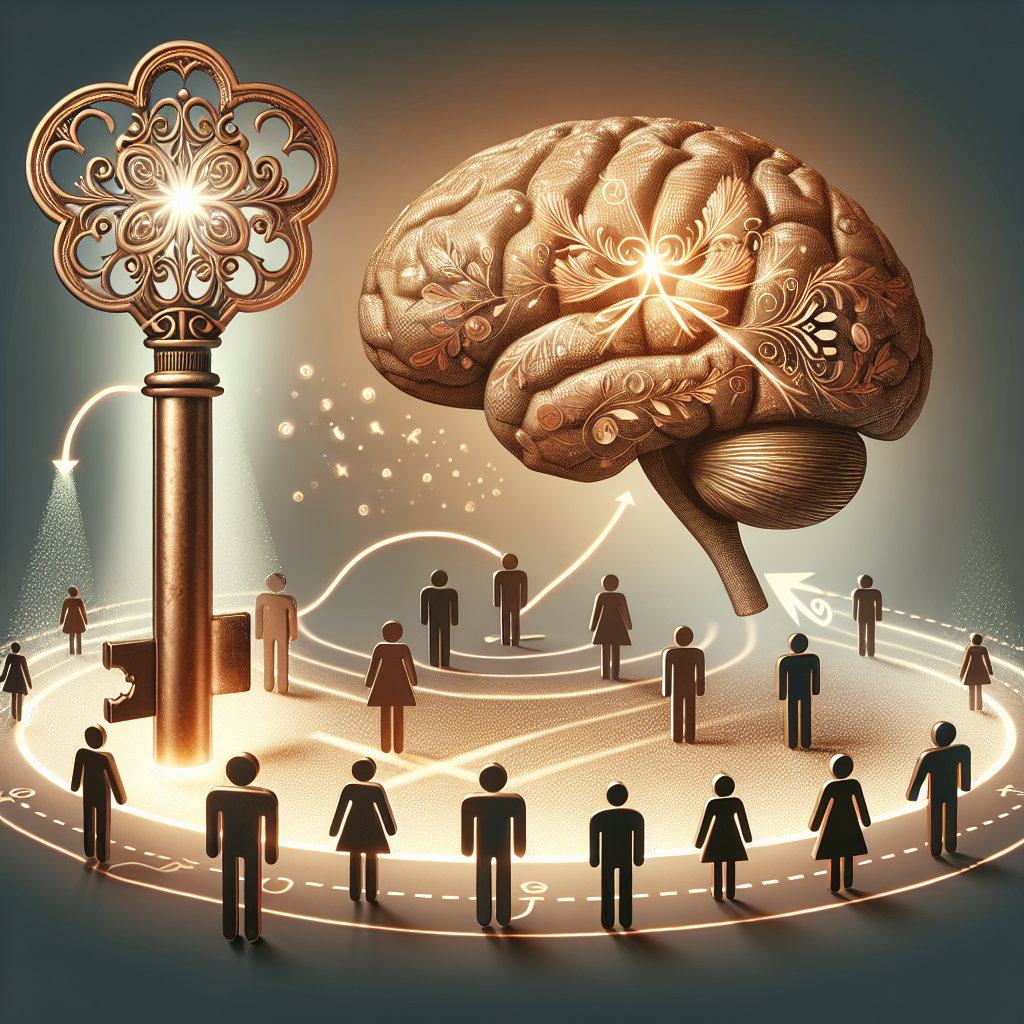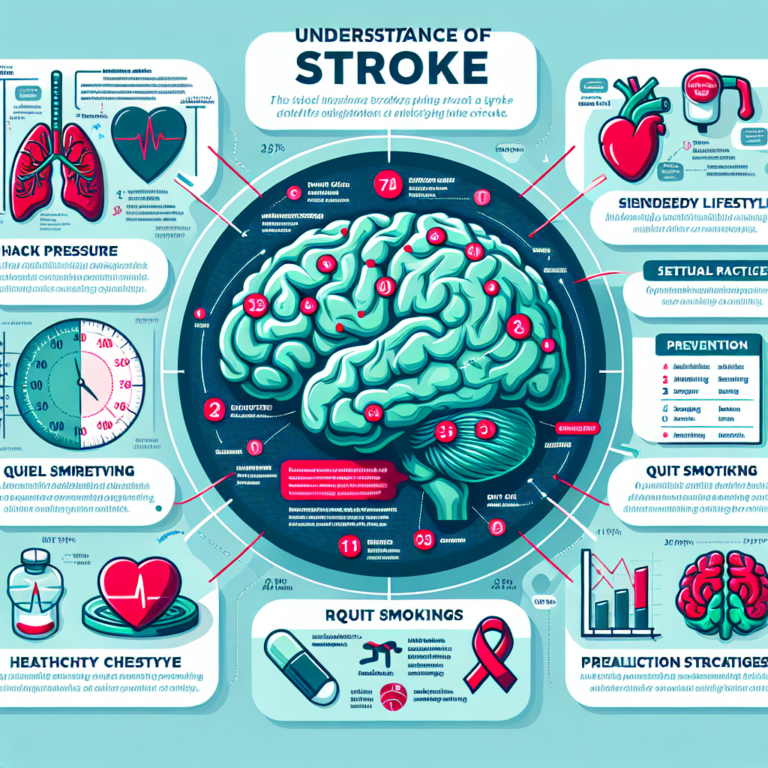
Introduction
Imagine waking up one day and being unable to remember where you put your keys or struggling to follow a conversation you once navigated with ease. For millions, this is a daily reality, often stemming from brain injuries, strokes, or neurodegenerative diseases. But what if there was a way to reclaim cognitive function, to reignite the spark of a vibrant mind? This is where cognitive rehabilitation comes into play; a transformative field that is not just restoring abilities but truly unlocking potential for a better quality of life. In this article, we’ll delve into Unlocking Potential: How Cognitive Rehabilitation Transforms Lives, exploring its methodologies, real-life impacts, and the science behind its effectiveness.
Understanding Cognitive Rehabilitation
Cognitive rehabilitation is a tailored set of therapeutic interventions aimed at improving cognitive function and enhancing the overall quality of life for individuals who have experienced brain injuries or cognitive decline. Whether it’s through structured exercises, technological aids, or lifestyle changes, cognitive rehabilitation is both an art and a science, designed to ‘retrain’ mental processes that have been compromised.
Why Cognitive Rehabilitation Matters
Cognitive rehabilitation holds profound significance for several reasons:
Diverse Applications:
- It is utilized across various conditions, including traumatic brain injuries, strokes, Alzheimer’s disease, and cognitive impairments associated with aging.
Evidence-Based Practices:
- Supported by extensive research, cognitive rehabilitation employs strategies that have been proven to yield results, helping individuals regain skills and navigate their daily lives.
- Holistic Improvement:
- Beyond mere cognitive recovery, rehabilitation often sees improvements in emotional well-being and social engagement, ultimately leading to more fulfilling lives.
The Cognitive Rehabilitation Process
Assessment and Personalized Plans
Successful cognitive rehabilitation begins with thorough assessment. Each individual’s needs vary widely, necessitating journeys tailored to their unique circumstances. Evaluations can involve:
- Standardized Tests: Assessing memory, attention, language skills, and problem-solving abilities.
- Observational Methods: Gauging everyday functioning in real-world scenarios.
With insights gathered, rehabilitation professionals create personalized rehabilitation plans that target specific cognitive deficits.
Techniques and Interventions
The transformation journey incorporates various techniques and interventions, such as:
Cognitive Exercises: Engaging patients in tasks that target specific functions, like memory games to improve recall or puzzles to enhance problem-solving skills.
Compensatory Strategies: Teaching individuals to use tools and technologies to assist in their daily lives, such as digital reminders for tasks.
- Mindfulness and Emotional Regulation: Helping individuals manage stress and emotional fluctuations through techniques that enhance mental resilience.
Technology in Cognitive Rehabilitation
The advent of technology has revolutionized the landscape of cognitive rehabilitation. Virtual reality (VR), for instance, offers immersive environments that can simulate real-life situations, substantially aiding recovery through engagement and interaction. Mobile applications also provide cognitive exercises and daily reminders directly, making rehabilitation accessible anywhere.
Case Studies Illustrating Transformation
Case Study 1: Sarah’s Journey Post-Stroke
Background:
Sarah, a 45-year-old woman, suffered a moderate stroke that affected her communication and memory. She found it challenging to return to her job as a teacher, which called for high levels of cognitive sharpness.
Intervention:
Under the guidance of cognitive rehabilitation specialists, Sarah began a regimen focused on language exercises, anchored by real-world scenarios that involved simulating classroom interactions.
Outcome:
After six months, Sarah demonstrated a marked improvement in her ability to communicate with colleagues and students. The cognitive rehabilitation not only helped her reclaim her job but also restored her confidence.
Relevance: Sarah’s story embodies Unlocking Potential: How Cognitive Rehabilitation Transforms Lives by showcasing personalized interventions leading to tangible milestones in recovery.
Case Study 2: James’ Recovery from Traumatic Brain Injury
Background:
James, a 32-year-old construction worker, encountered a serious accident that left him with significant cognitive deficits, especially in memory and processing speed.
Intervention:
Using a mix of cognitive exercises tailored to improve his short-term memory and problem-solving skills, James also worked with technology that used gamification to make learning fun.
Outcome:
With sustained effort, James regained the ability to follow conversations and remembered important tasks. Over time, he successfully returned to work and participated actively in social events.
Relevance: This case illustrates the profound effects of cognitive rehabilitation in not just restoring abilities but also in unlocking potential for returning to everyday engagements.
Effectiveness Metrics in Cognitive Rehabilitation
Quantifying success in cognitive rehabilitation is pivotal for promoting its value. The table below highlights some key metrics often utilized to measure effectiveness.
| Metric | Description | Example Outcomes |
|---|---|---|
| Memory Recall Rate | Percentage of correct responses in memory tasks | Increased from 30% to 70% |
| Functional Independence Measure | Assesses daily living skills | Improvement by 60% |
| Quality of Life Assessment | Patient-reported measures of life satisfaction | Significant improvement |
The Psychological Aspect: Emotional and Social Relevance
Cognitive rehabilitation is not confined to the cognitive domain; its ripple effects extend into emotional and social realms. When individuals regain cognitive functions, their emotional states often improve, leading to enhanced social interactions.
For instance, individuals like Sarah and James, who regain their cognitive faculties, frequently report feeling less isolated and more connected. This holistic progress underpins the essential role of cognitive rehabilitation in fostering psychological well-being alongside cognitive recovery.
Sustainable Practices for Long-Term Growth
Lifestyle Changes and Continuous Engagement
Success in cognitive rehabilitation doesn’t end with therapy; it requires the adoption of sustainable practices. Here are some strategies for maintaining cognitive health long-term:
Regular Mental Exercises: Continuous engagement with activities that challenge the brain, such as puzzles, reading, or learning new skills.
Physical Health: Regular cardiovascular exercise has positive correlations with cognitive health due to improved blood flow to the brain.
Social Interaction: Maintaining social ties and participating in group activities facilitates cognitive engagement and emotional support.
- Healthy Diet: Foods rich in omega-3 fatty acids, antioxidants, and vitamins are known to support brain health.
By incorporating such lifestyle changes, individuals can align themselves with the guiding principle of Unlocking Potential: How Cognitive Rehabilitation Transforms Lives, embracing their cognitive futures with positivity.
Conclusion
In our fast-paced world, where cognitive health is paramount, understanding the transformative power of cognitive rehabilitation proves essential. As we have explored, this intricate system of assessments, tailored interventions, and continuous support is more than therapy—it’s a lifeline for countless individuals striving to reclaim their identities, functions, and lives.
Cognitive rehabilitation holds the promise of unlocking potential through personalized care strategies, proper assessments, and innovative uses of technology. As we continue to champion these methods and raise awareness, it’s vital for us to inspire those in need of cognitive recovery, reminding them that there is hope, and assistance is available.
FAQs
1. What conditions can cognitive rehabilitation help with?
Cognitive rehabilitation can assist individuals recovering from strokes, traumatic brain injuries, dementia, and other cognitive impairments associated with aging.
2. How long does cognitive rehabilitation take?
The duration of cognitive rehabilitation varies based on individual needs, ranging from a few weeks to several months or longer, depending on the severity of cognitive deficits.
3. Are cognitive rehabilitation exercises accessible for home practice?
Yes, many cognitive exercises can be practiced at home, often supplemented by mobile apps or guided by professionals during therapy sessions.
4. Is cognitive rehabilitation covered by insurance?
Coverage for cognitive rehabilitation varies by insurance provider and policy, but many policies do cover therapy sessions relating to cognitive deficits.
5. How can family members support a loved one in cognitive rehabilitation?
Family members can aid by providing emotional support, assisting with exercises, encouraging participation in social activities, and maintaining a positive environment conducive to rehabilitation.
In summary, cognitive rehabilitation shines as a beacon of hope, unlocking potential and transforming lives—one mind at a time. Embrace the journey; your brain’s capacity for recovery may astound you.















